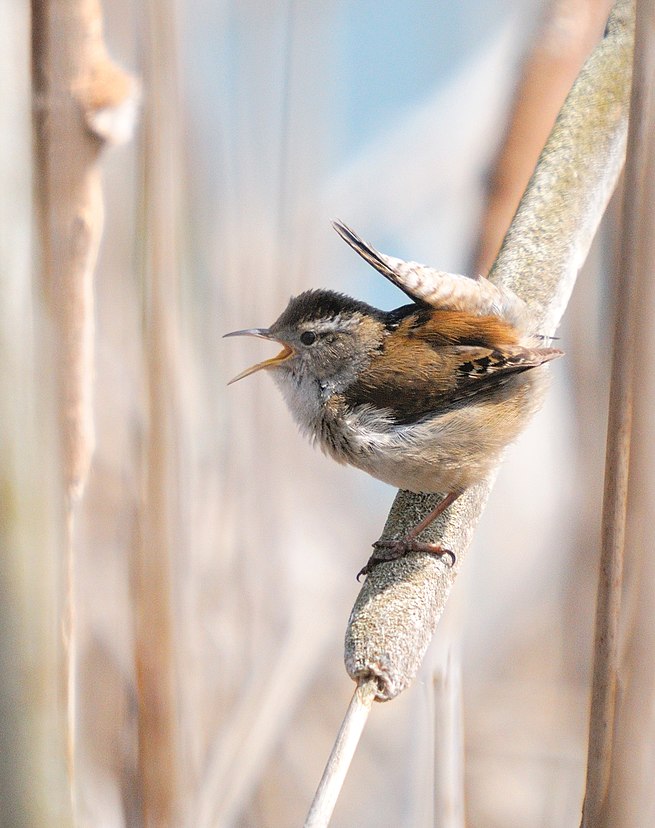-
Wren
Wrens are a family of brown passerine birds in the predominantly New World family Troglodytidae. The family includes 88 species divided into 19 genera. Only the Eurasian wren occurs in the Old World, where, in Anglophone regions, it is commonly known simply as the “wren”, as it is the originator of the name. The name wren has been applied to other, unrelated birds, particularly the New Zealand wrens (Acanthisittidae) and the Australian wrens (Maluridae).
Most wrens are small and inconspicuous (being, in fact, the shortest bird in England) though they have loud and often complex songs. Exceptions include the relatively large members of the genus Campylorhynchus, which can be quite bold in their behavior. Wrens have short wings that are barred in most species, and they often hold their tails upright. Wrens are primarily insectivorous, eating insects, spiders, and other small invertebrates, but many species also eat vegetable matter and some eat small frogs and lizards.
-
Wren (noun)
Any member of a mainly New World passerine bird family Troglodytidae; true wren.
-
Wren (noun)
Small bird of similar appearance to a true wren.
-
Sparrow (noun)
The house sparrow, Passer domesticus; a small bird with a short bill, and brown, white and gray feathers.
-
Sparrow (noun)
A member of the family Passeridae, comprising small Old World songbirds.
-
Sparrow (noun)
A member of the family Emberizidae, comprising small New World songbirds.
-
Sparrow (noun)
Generically, any small, nondescript bird.
-
Sparrow (noun)
A quick-witted, lively person. Often used in the phrase cockney sparrow.

